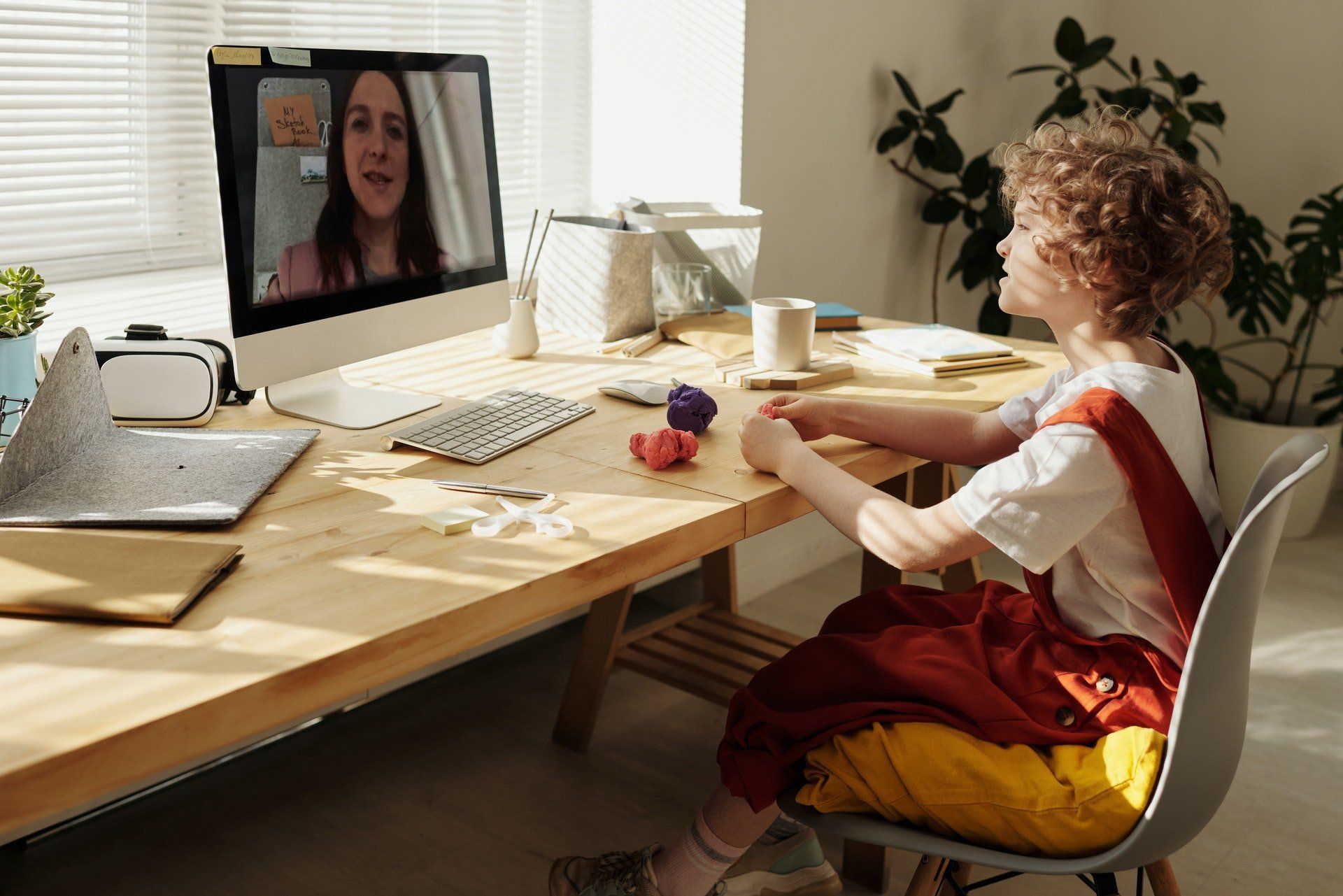Is Your Child Struggling at School?
November 21, 2018
Is Your Child Struggling at School?
When a child begins to struggle with their school work, you need to get them the help they need as soon as possible. The longer it takes, the bigger the gap becomes, especially since the school learning continues forward and the school may not have noticed or not be able to fund the help needed.
How can you tell if your child is struggling? It’s not easy to spot as children aren’t always open about their school performance, especially if they do not feel good about it. Also keep in mind that children can have off days but watch for a pattern or regular issues, the earlier you find out what is behind the change the better.
Below are some signs to look for:
1) Your Child Suddenly Refuses to Discuss School
If your child ‘shuts down’ and doesn’t want to tell you about what they are learning in school, or how their school day went, it can be a signal that something is not right. This could be subject related so you can identify which subject they are struggling with.
2) Your Child Has a Sudden Major Change in Attitude About School
If your child suddenly becomes distant or angry towards school, you can bet there is an issue. Also watch for boredom. Many children will complain they are bored, when in actual fact they don’t understand what is being taught. Look deeper to find the cause.
3) Your Child Spends an Excessive Amount of Time on Homework
It is a big warning sign if your child is falling into a pattern of having little to no free time outside of school because they are spending their time on homework. Having said this, you need to know what volume of work the teachers give so you can recognise increased time spent.
4) They Begin Misbehaving at School
Sometimes misbehaviour at school is really your child’s way of trying to take attention off the fact they are struggling with their work. If your child is usually well behaved and suddenly begins to have behaviour problems at school, take a look not only at what is happening in their social world but also their academic work as well.
5) Your Child’s Teacher Expresses Concern
Sometimes it is easy to dismiss what a teacher is telling you about your child, especially if what the teacher is telling you is different to how your child has always been. Teachers usually have some suggestions in mind what they think might help. The teacher’s thoughts and ideas are information that you can put together with everything else you know about your child to know if they are struggling and some of the options available to help them.
6) Your Child Begins Having Trouble Sleeping or Eating
Problems sleeping or eating often result from worry. Your child may be having problems sleeping or eating if they know they aren’t keeping up with the class on their school work.
7) Your Child Receives Low Grades
This sign is an obvious one, yet sometimes children and school parents do not want to believe that it is a sign that the child is struggling with the material in school. Some parents feel that bad grades only mean that the child just doesn’t understand the importance of education in their lives yet and will somehow snap out of it and be successful once the child is a little older.
The support, encouragement, and advocacy you provide your child when they begin to struggle in school can make a huge difference in your child being able to get back on track.
The most important thing to remember is to get help as soon as possible. If the problems persist, reassure your child that everything will be ok and seek help. Organisations such as Elite Tuition Group are a great place to start. We have heard every problem and seen the struggles first hand. We can help reassure a child quickly and get them back on track.
Don’t worry on your own, call us on 0333 456 0368.

There is an argument that a child’s education is best left to their school teachers, but there is also a counter argument that education is an institution where one size doesn’t fit all and children will learn at different rates. In these cases, the level and/or style of education that your primary teacher is delivering may not be appropriate for your child, and they may not respond to it well. Even at primary level, students are starting to develop their own individual educational style and learning speed, and that might not be fully realised in a mainstream environment. From an early age, children start to find that the simple presentation of information may not be the best way for them to learn, but a mainstream teacher may not have the time available to uncover that, let alone adjust their teaching style to accommodate it. That could leave your child at a disadvantage, and affect their learning deeply. So, what can you do about that? Many parents find that the more bespoke and flexible approach of private tuition can provide the answers. Private tutors are able to take their time to really understand their students and find out the best way to educate them. This is a far cry from what they are likely to find in the standard classroom, and can make a child grow in confidence as they find that their own learning style is being embraced. Primary school English tuition follows set rules and standards. A teacher will have a certain curriculum to follow and all of their lessons will be set out for them in a scheme of work (SoW). This is the document that will be followed throughout the year and it is pretty rigid. There is little scope for lessons to move outside of the scope of work and if a child doesn’t fully understand a concept, or needs extra coaching, the teacher may not have time set aside to be able to offer that extra tuition. A private tutor will, however, take the time to get to know your child and understand which areas of curriculum they need further assistance with, and then be in a position to deliver it. But because the private tutor is not tied to a scheme of work, they can focus on the areas that your child needs help with specifically, and make them a more confident learner from an early age. We'd love to show you what we can offer and we're also here for no-obligation support, as well as free assessments for all children.

Has maths changed significantly or did we just fail to listen properly at school? Whatever it is, if your child brings you their maths homework, the chances are that you will just look at it blankly for a few moments and then tell them to go ask their other parent, because you don’t know the answer. Maths at secondary level starts to get serious, and don’t worry if you can’t help your child with it; there are many who cannot. Secondary maths tuition isn’t something that you can just pick up and go with. Maths, together with physics, chemistry, biology, and general science is a subject that you actually have to know to be able to get by in. Unlike other subjects, they are difficult to guess the answer correctly and you actually have to be in receipt of the knowledge to be able to help your child out. As many of us left school some time ago, and haven’t really practiced since then, we usually aren’t in a position to work the answers out, and definitely not to help our children with it. But your child education is their pathway to a good career and really getting on in the world, and you want them to do the best they can, so what are the alternatives? You can leave it to fate and take a pragmatic view that your child will do the best that they can, and that will shape their lives, but that relies on how well your child can do in both coursework and during exams. You can try helping yourself, but you actually run the danger of damaging your child’s education if you fundamentally misunderstand what they are trying to do, or don’t really know the subject. Perhaps a better option is to look at using an online tutor who does know their subject and has a proven track record of helping secondary school students get through their coursework successfully. Secondary-level maths tutors are highly adept at their subject and can teach to any level, which means that they will not only be able to help with your child’s current level of education, but can improve it too! Private tuition may sound extravagant, but it is a system that an increasing number of parents are turning to so that they can ensure their child does well in subjects that they may be struggling with, and excel in those that they are good at. An education is all about taking a subject and making the student comfortable and adept at it, and that is what a private tutor can do. So, the concept is obvious, but how do you locate a suitable tutor who can help with your child’s education? Many parents carry out internet searches using terms such as “GCSE Tuition Centre Near Me”, “Secondary Maths Tuition”, or even “Online GCSE Maths Tutor” and sift through the results of those. These are all very good terms since they will highlight tutor groups who are both available online but run classes that are close to where you live. Getting your child extra tuition is a great way to not only help them enjoy their education, but also to improve grades and set them on the right course for the rest of their lives.

